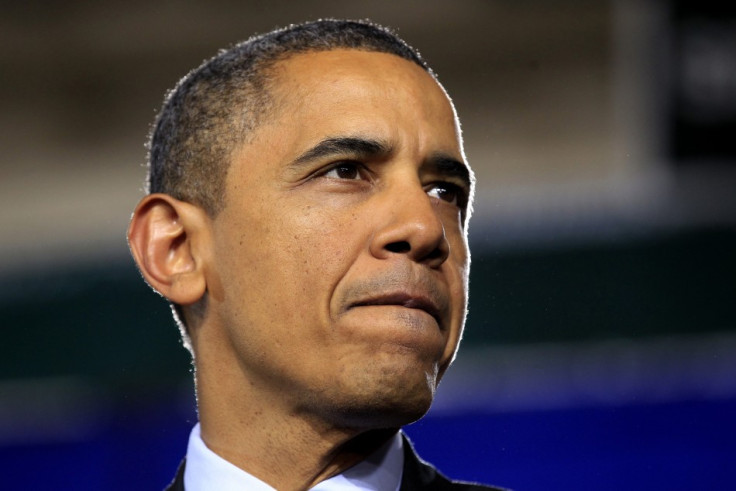Could Barack Obama be a Victim of the Eurozone Debt Crisis?

The eurozone crisis has already led to the toppling of two elected governments and their replacement with EU approved technocrats with a democratic mandate somewhat below that enjoyed by Robert Mugabe. With Barack Obama up for re-election next year, could the euro crisis even lead to the toppling of the so-called leader of the free world?
While the power of the EU may be great, it's arm has thankfully not grown so long that it can reach across the Atlantic and replace Obama with say, Ben Bernanke, the problem facing the EU is not dissimilar to that faced by the United States. The problem of debt in other words.
The foreign debt of the United States currently stands at around 14 trillion dollars, a figure only a little higher than the combined foreign debt of Germany, France, Spain and Portugal.
The Tea Party movement, which although quiet at the moment, gave a nasty shock to Obama at last year's midterm elections, has clearly picked up on this and set its face against the high tax, high spend state apparently favoured by Obama.
While Obama is by no means solely responsible for the huge debt that the U.S. carries (around six trillion dollars worth was added by George W. Bush), he is responsible for his own reaction to that debt. Should he add to it or try to pay it off?
He has for the most part decided to add it with dubious "stimulus programmes" and his expensive and highly controversial (not necessarily a bad thing) healthcare programme.
So far, despite a downgrade on its credit rating by Standard & Poor's, the U.S. has managed to get away with obscenely high debts because the value of its GDP is not far off that of its debt.
By contrast Greece holds foreign debts worth half a trillion dollars. Almost nothing to the U.S. but rather a lot when your national GDP is only worth a quarter of a trillion dollars as it is in the case of Greece.
Clearly the U.S. is not yet in the same kind of debt crisis faced by Europe, where it is far from unusual for countries to have foreign debt double the value of annual GDP, or worse. Britain for example owes an amount equal to four times its GDP, in the case of Ireland the figure is eight times higher than GDP.
The danger for the U.S. is that it fails to learn the lesson being learned (or rather not being learned) in Europe. That lesson is that if you borrow money you one day have to pay it back, not by borrowing Bernard Madoff style from one person to pay off another, but with actual hard earned cash.
Greece and Italy believed they would never have to pay, or that Germans would pay for them, perhaps the latter is true but it has cost them their democracy.
While the U.S. is mercifully safe from an EU takeover, Obama's opponents, although a bit of a ragtag bunch at the moment, may be able to re-mobilise the Tea Party movement, or something like it, point to the debt crisis in Europe, capitalise on the danger of debt and the high taxes that come with it and turf out the big spender Obama.
In Obama's favour however are the shortcomings of most Republican candidates but also the tendency of the American people to be blissfully unaware of anything happening in little known and hard-to-find-on-the-map places like Europe.
It would be a tragedy if just as the EU's attempt to create a United States of Europe faces an existential threat (secessionist movements are already on the rise), the United States of America ended up emulating the disastrous, debt laden and hopefully doomed EU.
© Copyright IBTimes 2025. All rights reserved.



















